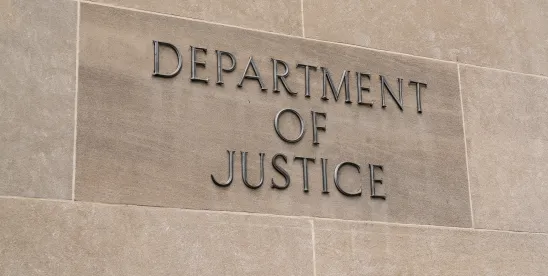In January 2025, The ERISA Industry Committee (ERIC) filed a complaint against the US Departments of Labor, Health and Human Services, and the Treasury (the departments) seeking to invalidate the 2024 final regulations under the Mental Health Parity and Addiction Equity Act of 2008 (MHPAEA) and the Consolidated Appropriations Act, 2021 (CAA). The US Department of Justice recently filed a motion for abeyance in the pending litigation, requesting that the court pause its review of the case and announcing that the Trump administration will stay enforcement of the final regulations to give the government an opportunity to reconsider the rule, “including whether to issue a notice of proposed rulemaking, rescinding or modifying the regulation.” The motion was approved on May 9, 2025.
In Depth
On May 15, 2025, the departments issued a communication titled “Statement of U.S. Departments of Labor, Health and Human Services, and the Treasury Regarding Enforcement of the Final Rule on Requirements Related to the Mental Health Parity and Addiction Equity Act.” The departments’ action is at least partially in response to Executive Order 14219, titled “Ensuring Lawful Governance and Implementing the President’s ‘Department of Government Efficiency’ Deregulatory Initiative,” which directs federal agencies to review regulations to identify those that may impose undue burdens on small businesses or significant costs upon private parties that are not outweighed by public benefits.
The statement is significant, as it advises that the departments “will not enforce the 2024 Final Rule or otherwise pursue enforcement actions, based on a failure to comply that occurs prior to a final decision in the litigation, plus an additional 18 months.” Notably, the relief applies only to those portions of the 2024 Final Rule that are newly added since the 2013 Final Rule. The statement reinstates the 2013 Final Rule, as interpreted by “FAQs About Mental Health and Substance Use Disorder Parity Implementation and the Consolidated Appropriations Act, 2021 Part 45.” The departments also note that MHPAEA’s statutory obligations, as amended by the CAA, continue to apply. In the case of the application of the MHPAEA rules within the jurisdiction of the department of Health and Human Services (i.e., the rules that apply to carriers), the statement encourages states, which are the primary enforcers of MHPAEA, to adopt a similar approach to enforcement.
The statement restores the status quo that was in effect before the adoption of the 2024 Final Rule, with at least three immediate consequences:
- The 2024 Final Rule’s “relevant data” requirement is suspended. Thus, compliance with the mental health parity requirements will no longer be tested on outcomes. Rather, the standard that applies temporarily is in the preamble to the 2013 final regulation (i.e., outcomes are not determinative of compliance).
- The 2024 Final Rule’s controversial “meaningful benefit” requirement is also suspended. This is the requirement that a plan that provides any benefits for a mental health condition or substance use disorder in any classification of benefits must provide meaningful benefits for that mental health condition or substance use disorder in every classification in which medical/surgical benefits are provided. For this purpose, a plan does not provide meaningful benefits unless it also provides benefits for a core treatment for the mental health condition or substance use disorder in each such classification.
- The 2024 Final Rule’s “fiduciary certification” requirement is suspended, at least temporarily. Absent the suspension, the 2024 Final Rule required fiduciaries to certify that they commissioned and reviewed an analysis of their compliance with the MHPAEA nonquantitative treatment limitations (NQTLs) requirements and that they selected and monitored their NQTL vendor.
One important obligation that remains is the requirement to prepare and make available an NQTL comparative analysis. The continued application of the CAA also means that plan sponsors and health insurance issuers must continue with their compliance efforts.
With respect to ongoing plan audits and investigations, the departments offered little insight as to how they may approach review or if their enforcement efforts may change moving forward. The statement notes that “The Departments will also undertake a broader reexamination of each department’s respective enforcement approach under MHPAEA” and that “the Departments may make updates to the subregulatory guidance implementing MHPAEA, including FAQs Part 45,” suggesting that some relief may be forthcoming. Additional guidance on the impact of the departments’ statement on these ongoing audit and enforcement activities would be welcome.
Action Items
Plan sponsors and health insurance issuers should continue to make good-faith efforts to comply with the MHPAEA guidance, as modified by the CAA. This includes, for example, preparation and maintenance of a written NQTL comparative analysis and ongoing review of benefit plans for compliance as applied to the plans’ written terms and operation.






 />i
/>i

